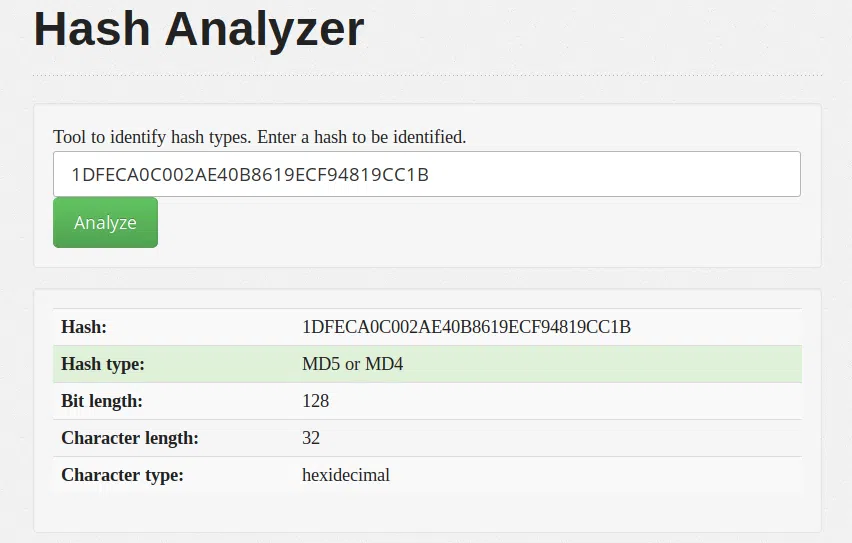Go by Example: SHA1 Hashes


Sha1 Hash Decoder
Sha1 Hash Crack

- CRC32, MD5, SHA-1, SHA-256, SHA-384, and SHA-512 are supported. The Create SFV button will create CRC32 checksums for the files and save them into an SFV file which you can use to verify later on. Right clicking a file will allow copying of the hash or its path along with supplying a hash manually or from the clipboard to compare with.
- SHA1 hashes are frequently used to compute short identities for binary or text blobs. For example, the git revision control system uses SHA1s extensively to identify versioned files and directories. Here’s how to compute SHA1 hashes in Go.
SHA1 hashes arefrequently used to compute short identities for binaryor text blobs. For example, the git revision controlsystem uses SHA1s extensively toidentify versioned files and directories. Here’s how tocompute SHA1 hashes in Go. |
Go implements several hash functions in various |
The pattern for generating a hash is |
|
This gets the finalized hash result as a byteslice. The argument to |
SHA1 values are often printed in hex, for examplein git commits. Use the |
Md5 Hash Cracker
Attacking (often referred to as cracking) SHA-1 hashes is most often performed using the same technique as any one-way hashing function. Computing possible matches of the original string as fast as possible to find a matching hash. Most web sites and applications store their user passwords into databases with SHA-1 encryption. This method appears to be safe as it seems impossible to retrieve original user passwords if, say, a hacker manages to have a look at the database content. Unfortunately, there is a way to decrypt a SHA-1 hash, using a dictionary populated with strings and their SHA-1 counterpart. As most users use very simple passwords (like '123456', 'password', 'abc123', etc), SHA-1. SHA1 online hash file checksum function Drop File Here.
Sha1 Hash File
Running the program computes the hash and prints it ina human-readable hex format. |
You can compute other hashes using a similar pattern tothe one shown above. For example, to compute MD5 hashesimport |
Note that if you need cryptographically secure hashes,you should carefully researchhash strength! |
Next example: Base64 Encoding.
Sha1 Hash Online
by Mark McGranaghan | source | license